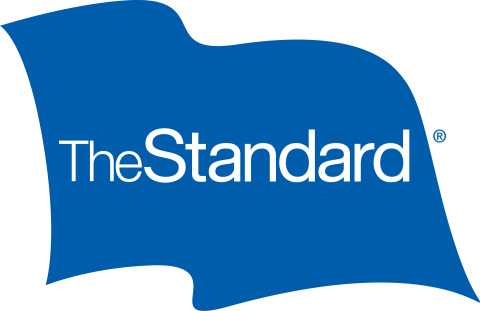39% of American Workers are Suffering from Mental Health Issues
39% of American Workers are Suffering from Mental Health Issues
Recent study conducted for The Standard uncovers need for companies to prioritize employee mental health
PORTLAND, Ore.--(BUSINESS WIRE)--According to new research, 39% of American workers suffer from mental health issues, ranging from moderate mental distress to serious mental illness. These findings focus on behavioral health and identify how mental health and substance abuse issues are affecting workplace engagement. In fact, 61% of workers have missed a day of work or have known someone who missed a day of work because of a mental health issue. This is just a glimpse into the real-life behavioral health experiences of more than 2,000 U.S. employees, across industries and generations. The study, conducted by Versta Research on behalf of The Standard, provides valuable insights for organizations throughout the country. This data can better position employers to prioritize mental health in the workplace, especially during the current climate of uncertainty.
“If Americans were suffering when this research was conducted a few short months ago, they are likely even more distressed now, given the global pandemic we are facing,” says Dan Jolivet, Workplace Possibilities practice consultant at The Standard. “The unstable state of our workforce and economy is undoubtedly compounding the mental health issues of America’s workers. Whether or not their organizations prioritize their mental health needs, people are struggling. It’s important employers act as a bridge to behavioral health support for their employees.”
According to the research, a large majority (91%) of U.S. workers believe companies should be helping employees with mental health or substance abuse issues. However, fewer than a third of employees say their employers are very good or excellent in supporting their behavioral health needs, and 73% say mental health is not talked about as a priority in their company. This could explain why only 38% of workers are comfortable seeking help from their organizations, with employee concerns about privacy and stigma being key barriers to coming forward. In fact, 10% of workers have avoided seeing a doctor or therapist because of work. Yet, nearly half (41%) of respondents want a workplace culture that fosters mental health over any other behavioral health support from employers.
Employer support is crucial when addressing behavioral health issues, so employees don’t feel as though they are just a number, as one survey participant described. 8% of workers think their companies would get rid of them for having behavioral health issues. Given the global pandemic, people are likely to be more fearful of anything that could potentially cost them their job.
“Employers should be prioritizing mental health right alongside physical health,” Jolivet adds. “Fostering an environment of trust, modeling an attainable work-life balance, providing viable support options and educating workers on their employee benefits are valuable steps employers must take. Building a workplace culture that bolsters behavioral health is crucial, especially during this time of uncertainty and added stress we’re all experiencing.”
To access more insights from The Standard’s Behavioral Health Impact Study, visit www.standard.com/behavioralhealth.
The Standard’s Behavioral Health Impact Study
The 2019-2020 Behavioral Health Impact Study was conducted by Versta Research on behalf of The Standard. Two-thousand-and-four full-time employees in the U.S. were surveyed about mental and behavioral health issues in the workplace. All respondents were between the ages of 21 to 69, employed full-time, aware of employer-sponsored disability benefits, whether their employer offered those benefits and whether they participated in them. All industries and economic sectors except federal government employees were included. Health care and manufacturing industries were oversampled (with 303 workers surveyed in each). Final data were weighted to bring oversampled industries back down to their proper proportions. In the overall total of respondents, mental health was measured using the Kessler K6 scale with cut off criteria recommended by Judith J. Prochaska, Hai-Yen Sung, Wendy Max, Yanling Shi and Michael Ong in “Validity Study of the K6 Scale as a Measure of Moderate Mental Distress based on Mental Health Treatment Need and Utilization,” published in the International Journal of Methods in Psychiatric Research, June 2012, Volume 21(2): 88–97.
About The Standard
The Standard is a family of businesses dedicated to helping customers achieve financial well-being and peace of mind. In business since 1906, we are a leading provider of financial products and services for groups and individuals. Our products include group and individual disability insurance, group life, dental and vision insurance, voluntary (employee-paid) benefits, absence management services, retirement plans and annuities for employers and individuals, and origination and servicing of fixed-rate commercial mortgage loans. For more information about The Standard, visit www.standard.com or follow us on Facebook, Twitter or LinkedIn.
The Standard is the marketing name for StanCorp Financial Group, Inc., and its subsidiaries: Standard Insurance Company, The Standard Life Insurance Company of New York, Standard Retirement Services, Inc., StanCorp Mortgage Investors, Inc., StanCorp Investment Advisers, Inc., StanCorp Real Estate, LLC, and StanCorp Equities, Inc.
Contacts
General Media
Bob Speltz, Senior Director, Community Relations
971.321.3162
bob.speltz@standard.com
National and Trade Media
Kayla Golden, Grady Britton
503.972.8809
kaylag@gradybritton.com
